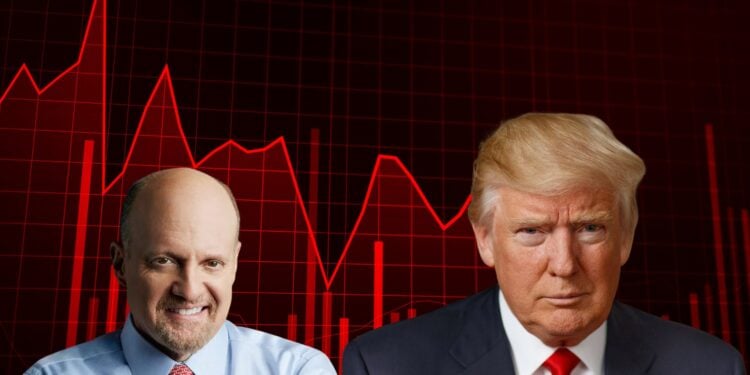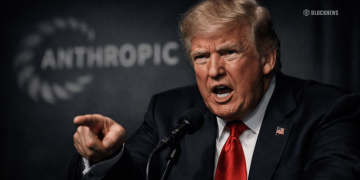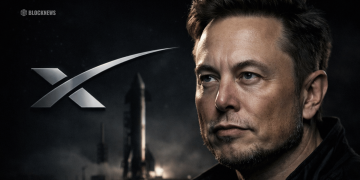- Trump’s Shift Causes Market Panic: Jim Cramer blames President Trump’s shift towards populist policies and tariffs for the recent market decline, causing investor panic and recession fears.
- Wall Street’s Sell-Off: Monday saw sharp losses across major indexes, with the S&P 500 dropping 2.7%, the Dow down 2.08%, and Nasdaq plunging 4%, fueled by uncertainty around Trump’s tariff approach.
- Cramer’s Investment Advice: Cramer recommends focusing on low-multiple tech, industrials, and banks, while avoiding top-performing tech stocks, as the “Magnificent Seven” no longer offers high returns.
On CNBC, Jim Cramer weighed in on the chaotic market drop that unfolded on Monday, and he pointed his finger squarely at President Donald Trump. According to Cramer, investors are in a state of panic, and it’s all thanks to Trump’s sudden shift in direction. Cramer noted that during his previous term, the president was much more market-friendly, but now he’s embracing more populist ideals, with tariffs taking the spotlight while the stock market seems to have slipped to the backburner.
Investors in Panic: A Sudden Shift to Populism
“Honestly, I can’t believe so many investors didn’t see this coming,” Cramer remarked, visibly surprised. “And it’s just mind-blowing to me. Trump’s flip-flop in attitude has absolutely terrified Wall Street. It’s like, overnight, the guys with the money have all concluded that a recession is right around the corner—and it’s going to hit fast.”
Market Sell-Off: Wall Street’s Fears Reach a Boiling Point
Monday’s sell-off was a perfect storm of panic, with Wall Street’s fears coming to a boil. The S&P 500 dropped a sharp 2.7%, the Dow Jones Industrial Average fell 2.08%, and the Nasdaq Composite took its biggest tumble since 2022, plunging 4%. Investors, gripped by uncertainty, are rattled by Trump’s mercurial tariff policies. The fear is that his new, unpredictable approach could mess with global trade and alienate crucial U.S. allies. Over the weekend, Trump made it even worse by suggesting there might be a “transition period” for the economy, sending the market into further disarray.
Cramer’s Analysis: Trump Shifts Focus from the Market
Cramer argued that Trump’s decision to shift his focus away from the market is the real troublemaker here. He pointed out that, like former President Joe Biden, Trump seems to accept that stockholders, for the most part, are wealthy and “have done well enough.” Investors, Cramer went on, are convinced that a recession is looming because, in their view, America is a consumer-driven economy—and with the chaos at the White House, consumers are feeling threatened. Now, while Cramer admitted this might be a bit of an overreaction, he suggested that some are drawing eerie parallels between Trump and Herbert Hoover, the former president who raised tariffs and deepened the Great Depression. To make matters worse, Wall Street is also spooked by a new competitor in the AI space—Chinese startup DeepSeek—which could potentially run cutting-edge tech cheaper and more efficiently than the current leaders in the field.
Frantic Sellers and Cramer’s Investment Advice
Cramer pointed out that many of Monday’s panicked sellers ended up locking in poor prices, and some even got “ripped off” when they quickly piled into stocks they thought were recession-proof. His advice? Look into “low-multiple techs, industrials, and banks,” but stay away from the so-called “Magnificent Seven” tech giants. Cramer declared that the days of those high-performing stocks were over.
Trump’s Tariff Policies: No End in Sight
In terms of Trump’s tariff policies, Cramer doesn’t see them easing up, even as the markets show signs of distress. “Sure, the president could roll them back if he wants to,” he said. “But let’s be real—he genuinely believes these tariffs are the right call. So, they’re probably going to keep coming, and with no finesse, just straight-up brute force.”
White House Responds: Trump’s Economic Legacy
A White House spokesperson, Kush Desai, responded to Cramer’s comments by highlighting the economic successes of Trump’s first term. “Since President Trump was elected, industry leaders have responded to his America First economic agenda—tariffs, deregulation, and unleashing American energy—with trillions in investment commitments,” Desai told CNBC. “These investments will create thousands of new jobs, and President Trump is on track to do it again in his second term.”














